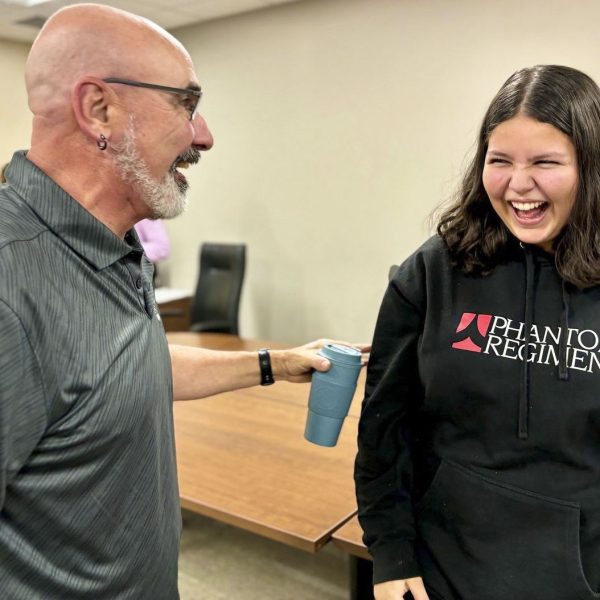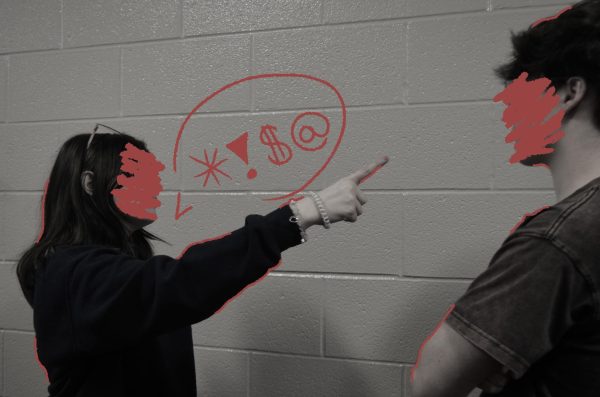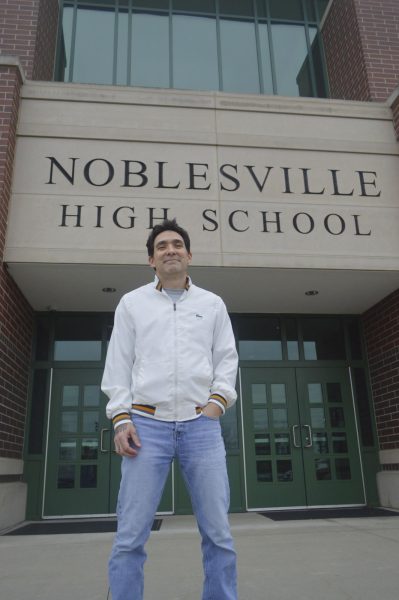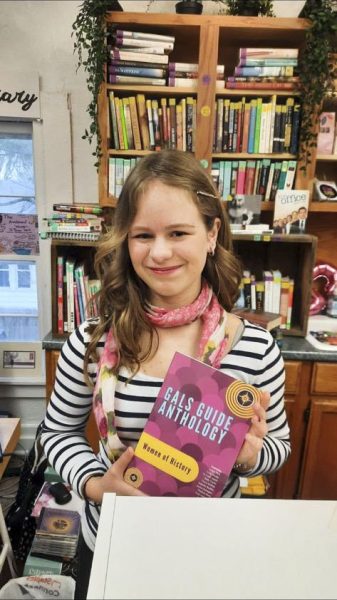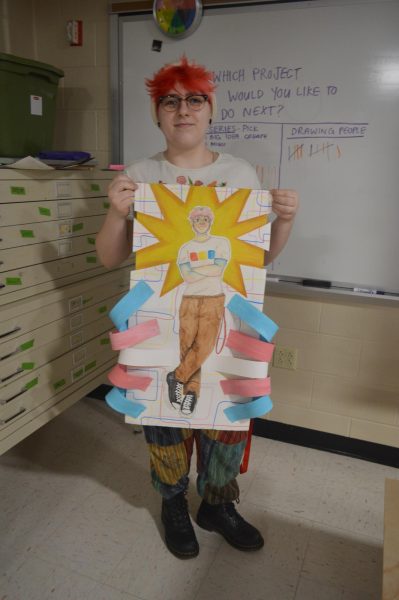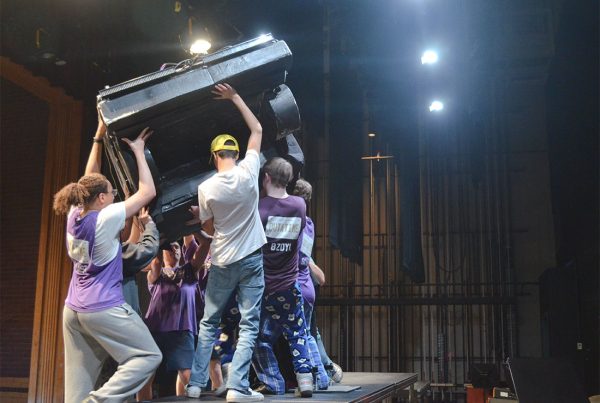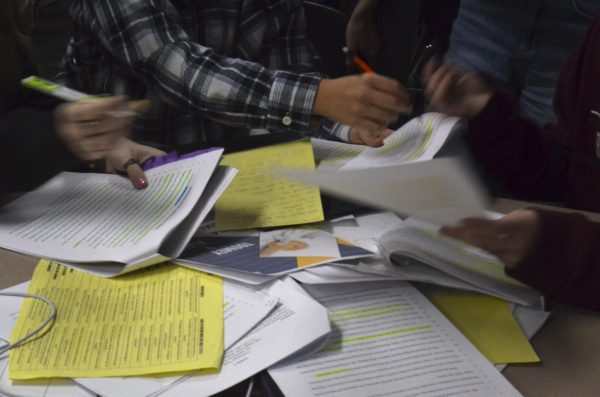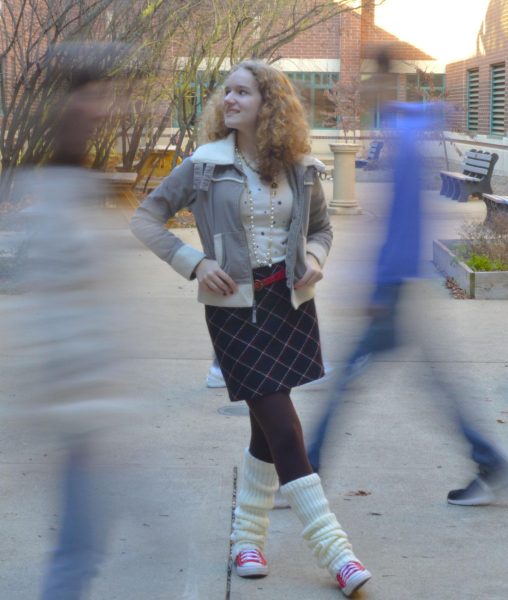Search for security
In today’s world, how much privacy do you really have?
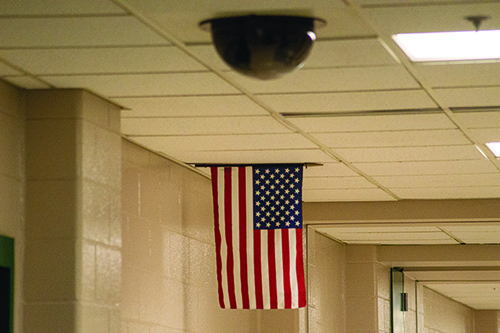
May 1, 2019
When it comes to your freedom and privacy, where do you draw the line? When it comes to your security and safety, what do you expect?
In 2013, National Security Agency (NSA) analyst Edward Snowden leaked thousands of NSA documents implying that the agency was conducting surveillance against American citizens and people in foreign countries. Many in the United States, including the federal government, have denounced these leaks out of legitimate fear of a compromise in national security.
Those leaks helped catalyze a national and global debate on the morality and legality of such surveillance, and more concisely, how security and privacy (or more broadly, freedom), are weighed against each other. How does this debate resonate in the halls of NHS?
Freedom, security, & your privacy
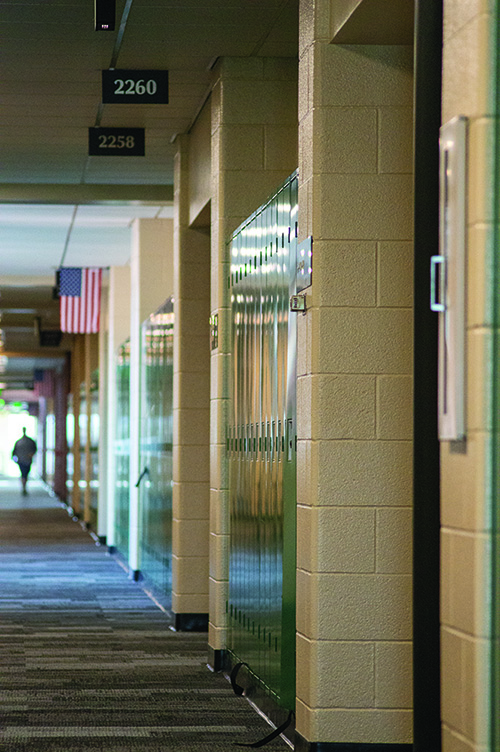 The question of security and privacy has been a big part of our political atmosphere for the past few decades. This question appears in many levels of our society, from the federal government all the way down to your own parents. Your parents want to weigh your privacy and your rights to independence as an individual with their legitimate concerns for your safety.
The question of security and privacy has been a big part of our political atmosphere for the past few decades. This question appears in many levels of our society, from the federal government all the way down to your own parents. Your parents want to weigh your privacy and your rights to independence as an individual with their legitimate concerns for your safety.
For students, a similar aspect of the debate can be found at Noblesville High School. NHS Assistant Principal Kevin Stuckwisch emphasizes that the privacy and the safety of students go hand in hand.
“Students have a legitimate expectation of privacy, but that expectation must be balanced against the school’s need to protect the learning environment and to keep the school safe,” Stuckwisch said. “Students may have the full expectation of privacy at school with their personal things, provided they are not violating school policies or laws. Students should not expect privacy when using a school-issued device or locker.”
NHS senior Zach Lamantia said that cracking down on freedom and privacy does not make him feel any more secure.
“Giving up freedoms for the sake of enhanced security is antithetical to the definition of security, or at least my own definition,” Lamantia said. “My definition of security is in the word; to feel secure in my own skin and not be worried about my surroundings. Repressing certain freedoms would destroy this sense of security.”
iPads, lockers, & your phone
The Responsible Use Agreement is a document which Noblesville High School students must agree to at the beginning of the school year in order to use the school’s technology. The agreement states the limitations to privacy that come with signing it.
“By entering into this agreement, the user agrees that any device subject to the agreement, including school-owned devices used anywhere and personally-owned devices used on the school network or on school property is subject to search by an appropriate school staff member,” the agreement states in the NS Student Technology Handbook.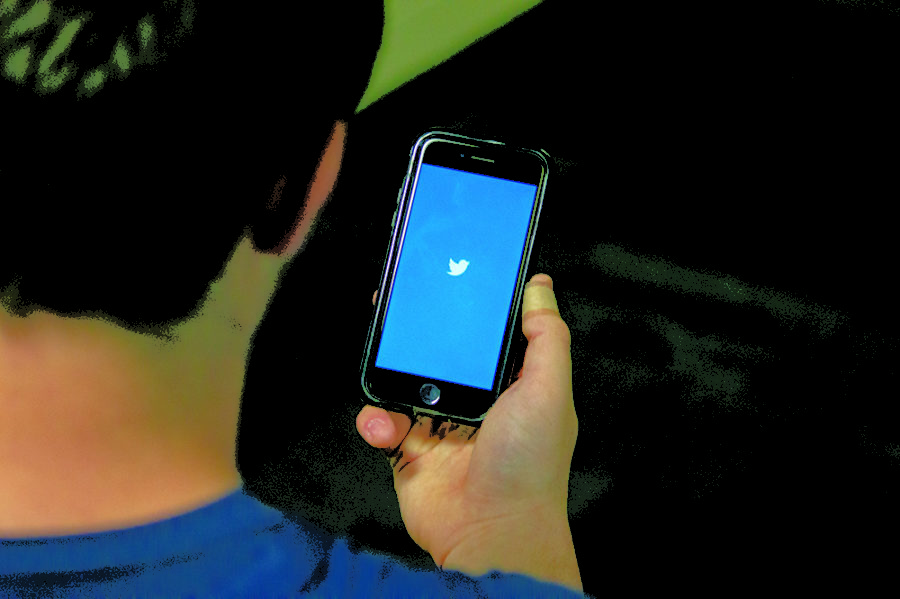
As Stuckwisch stated, there is a clear delineation between personal possessions or devices and school-issued technology.
“School-issued iPads are the property of Noblesville Schools. Consequently, the school (or District) can search an iPad at any time and for any reason,” Stuckwisch said.
The Noblesville High School 2018-2019 Student Handbook backs up Stuckwisch. On page 23 of the handbook, the process of search and seizure is explained: “According to Board Policy and Indiana law, a student shall have no expectation of privacy in school facilities such as lockers and desks that are school property provided for student use.”
Indiana state law addresses locker searches. It includes that “[a] student who uses a locker that is the property of a school corporation is presumed to have no expectation of privacy in […] that locker […] or the locker’s contents.”
Anthony Lawrence, a criminal defense attorney and former prosecutor practicing in Anderson, who has worked on cases of both sides of the issue, explained the wording of the state law.
“Under the provisions of the Indiana Code, a school corporation may adopt rules for such searches and must then provide each student and each student’s parents with a copy of the rules,” Lawrence said. “A principal may search a student’s locker and its contents at any time in accordance with such rules, and a law enforcement agency with jurisdiction over the school’s location is authorized to assist a school administrator in such a search if requested by the principal in accordance with the rules.”
While the school does have free reign over their own lockers and iPads, when it comes to a student’s personal property, such as a cell phone, the issue becomes fuzzy.
“The school can perform a search of a student’s personal device, [for example,] a cell phone,” Stuckwisch said, “but the search must be ‘reasonable.’ In other words, school officials must have reasonable grounds to believe that a search will discover evidence that a student has broken, or is breaking, either the law or school policy.”
The NHS Student Handbook further explains that such a search “will be limited in scope based upon the limitations of the Fourth Amendment [of the United States Constitution] and any other applicable legal restriction.”
The Fourth Amendment protects Americans from unreasonable searches and seizure. Additionally, the Constitution of Indiana protects Hoosiers from unreasonable search and seizure. The question becomes this: what is a reasonable search?
The Supreme Court of Indiana established in Litchfield v. State of Indiana that, under the Indiana Constitution, “reasonableness of a search or seizure [is] a balance of: 1) the degree of concern, suspicion, or knowledge that a violation has occurred, 2) the degree of intrusion the method of the search or seizure imposes on the citizen’s ordinary activities, and 3) the extent of law enforcement needs.”
NHS senior Ellie Jaensson believes that the threshold for a school official seizing and searching a personal device should be very high.
“Phones should not be taken unless the scenario is serious,” Jaensson said. “There’s no reason to take a phone unless [the school doesn’t trust] students and their honesty. Whenever students’ phones are taken, [I] would be very distraught as it has lots of information about myself, and they just took that part of me.”
Lamantia said that he has never had his phone searched at school, and that he understands the school’s policy to an extent.
“I would say searching through a students phone in extreme cases are effective in finding secrets that they may be denying,” Lamantia said. “I would want to ensure that the administrators doesn’t unnecessarily take phones too early in moderate cases.”
Emails, tweets, & your destiny
Another possible cause for student concern is how the school interacts with student social media profiles. Page 36 of the Student Handbook explains that students should “not expect privacy in the contents of their personal files on the district’s internet system or other district technology.”
For social media posts that aren’t made on campus or on district technology, the issue gets murky. The Student Handbook says that off-campus online activity could get students in trouble if “the school reasonably believes the conduct or speech will cause actual, material disruption of school activities.”
“Almost all the social media posts that we follow-up on come to us via reports from students, parents, and community members,” Stuckwisch said. “We can act on any social media post that has the potential to affect the learning environment or the safety of Noblesville Schools and its students. Additionally, when it comes to those students who choose to do extracurricular activities at the school, we can act on anything that demonstrates unbecoming behavior as per the Athletic Handbook.”
Social media and all other speech are still protected, in most cases, under the First Amendment, though schooltime restrictions to the First Amendment are similar to those that come with the Fourth.
“Students have fewer constitutional rights in school than they do out of school,” Lawrence said. “Schools have a duty to foster a safe environment conducive to education while still respecting some student constitutional and due process rights. A student can express their opinion or belief but must do so in a way that is not disruptive to instruction or school activities.”
Jaensson says that students should consider that their social media activity goes beyond what the school sees as violation of conduct.
“Social media is a expression of oneself but students need to realize what they retweet or post is seen by future employers,” Jaensson said. “I feel school shouldn’t do much about what a student posts until it becomes or suggests illegal activity and it may be investigated further. It’s best for the students so they can change before they become adults and jobs could be put on the line over something they posted.”
The Student Handbook drives the point home.
“Do not have a false sense of security about your rights to freedom of speech. Understand that freedom of speech is not unlimited,” the Student Handbook says. “The online social network sites are not a place where you can say and do whatever you want without repercussions. The information you post on a social networking site is considered public information. Protect yourself by maintaining a self-image of which you can be proud for years to come.”






